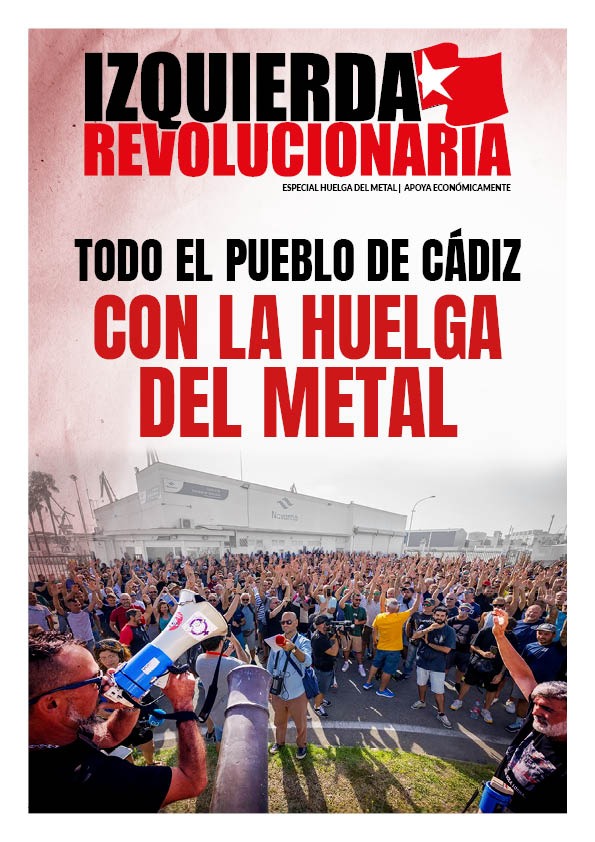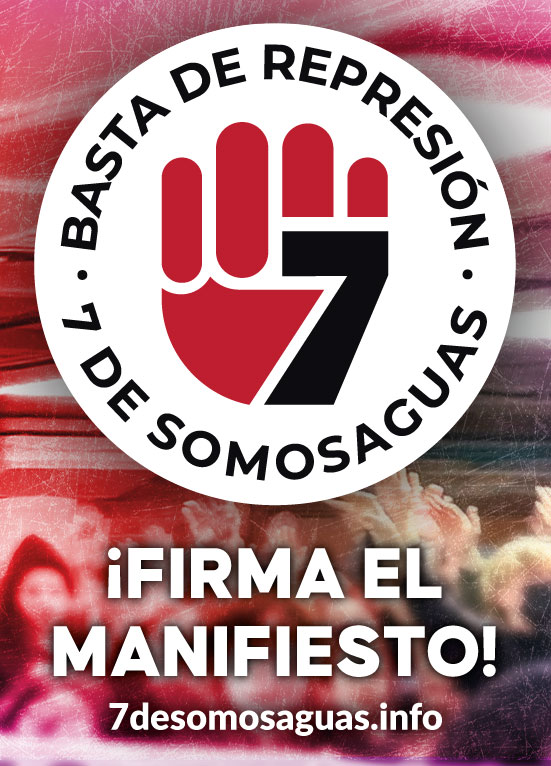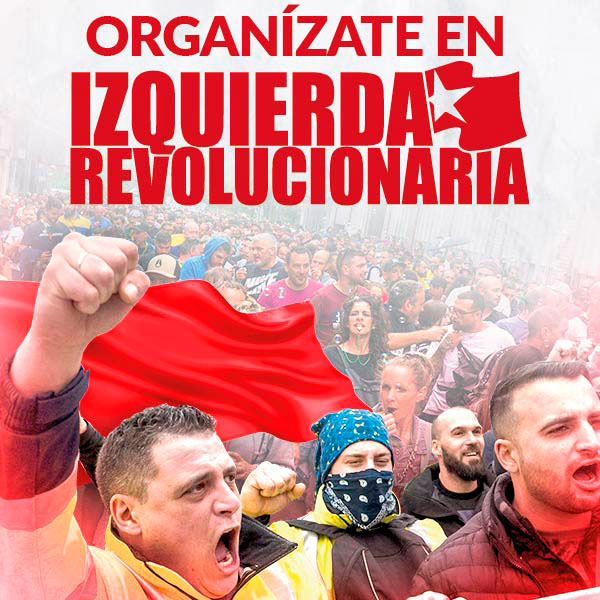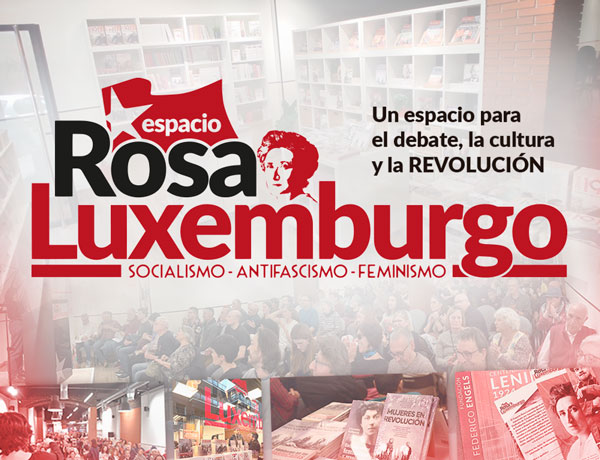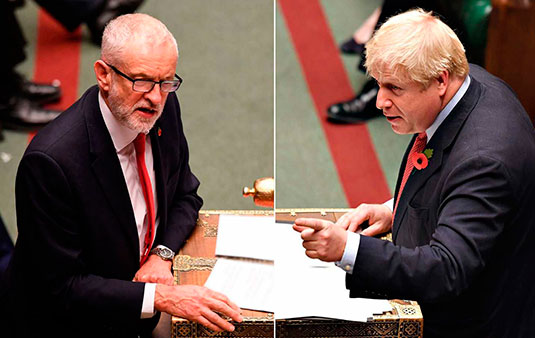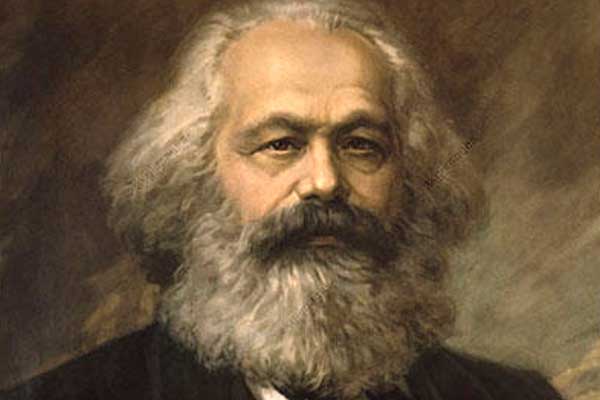The elections in Great Britain have resulted in a shocking victory for Boris Johnson and the Conservative Party. With 13,966,565 votes, 43.6%, the Tories achieved a comfortable absolute majority of 365 MPs, winning 47 new seats compared to the 2017 election. Although the increase in votes was quite limited, only 329,881 more (1.2%), the news of the sharp decline of the Labour Party led by Jeremy Corbyn has shocked the ranks of the left, of broad sectors of the British working class and youth, and activists throughout the world.
Understanding what has happened is a major task in preparing for the future battles of the class struggle that will inevitably erupt in force under this reactionary chauvinist. And this certainly requires a serious examination of the causes of this defeat, not only to respond to the lies of the ruling class and its media--which are up to their necks in a dirty campaign of slander and libel against the Labour candidate — but also to avoid falling into superficial explanations that seek to hide the responsibility of Corbyn, Momentum’s leaders and the unions’ leaderships for what has happened. Only by drawing the political lessons from these events, however bitter they may be, will it be possible to strengthen and build an alternative capable of overcoming the nightmare of the Tory government.
Smear campaign... and something else
The key to these elections has been the drain on the votes suffered by Corbyn, which, compared to the 2017 elections, has lost 2,582,853, rising from 40% to 32.2%. The bourgeois media have blatantly lied, presenting this result as the worst since 1935, but in reality, Corbyn has garnered more than 10 million votes, more than Blair won in his last election victory in 2005, and far more than the 29% achieved by Gordon Brown in 2010.
Numerous explanations, many of them provided by organizations claiming to be Marxists, have placed the fundamental cause of these results in the savage campaign of discredit and poisonous lies that the bourgeoisie and its mass media have orchestrated against Corbyn. The sneaky accusations of his alleged anti-Semitism have been repeated in all forums and amplified by the Blairist wing of Labour, which has also not shied away from sabotaging his candidacy with hostile statements that have filled the pages of newspapers and numerous TV talk shows.
The latter have taken pains to portray Corbyn as a "red devil", eager for revenge against the employers and responsible for the economic collapse that the UK would suffer if its "nationalisation" programme were to be implemented. It is impossible to deny the barrage of angry attacks on the Labour candidate that ultimately reflected the ruling class's dread of his possible victory. This is all very true. But we should also remember that a similar campaign took place in 2017, and the results were different with a big comeback by Corbyn. The British bourgeoisie was not going to stand idly by and allow the implementation of a program that could break the agenda of cutbacks and austerity drawn up over three decades ago. The stakes were high.
The question is why the Labour leadership in Corbyn's hands has not been able to resist this pressure, and why more than two million voters, mostly from the working class, have turned their backs on him. There are important questions here.
First. What has been Corbyn's attitude to the Brexit and the second referendum campaign, and how did he position himself in the face of the closure of the British Parliament last August?
Second. The British working class and youth have been suffering from a gale of labour counter-reforms, wage attacks, widespread precariousness, the deterioration of the public health system (NHS), the privatisation of university education, racist immigration controls, rampant housing speculation, abusive rents and the growth of poverty... But the unions have maintained a general strategy of social peace and demobilisation. What has Corbyn done about the policy of the trade union bureaucracy?
Third. Thousands of Labour councillors and mayors across the UK continue to pursue policies of cutbacks. What has Corbyn's position been?
Fourth. In Scotland, Labour has been swept aside at the polls: they retain only 1 seat out of the 59 in dispute. It is important to know how Labour's leader has positioned himself in the face of the right to self-determination of the Scottish people and the growing aspirations for independence.
The Brexit and Corbyn's position
Not a few "salon revolutionaries" complain bitterly about how bad the Brexit debate has been for the working class. The protest from their computers about the "polarization" around this question, which has "divided" British society not along class lines but under "reactionary arguments" creating a haze of confusion and misdirection that has been exploited by Johnson. Arguments that are reminiscent of those used in the Spanish State by the leaders of Unidas Podemos when they lament the outbreak of the Catalan national question and sigh for the good old days when they were not bothered with such issues.
The dynamics of the class struggle rarely respond to the schemes of doctrinarians and opportunists. It is true that the Brexit originated as a manoeuvre by the British ruling class to seek a way out of the serious economic and political crisis of the moment, and thus to wriggle out of its responsibilities by waving the flag of chauvinism. But the result of the Brexit referendum also reflected the workers' weariness with the austerity measures and cuts of the European capitalist elite, becoming a wake-up call to break with a status quo completely unfavourable to the interests of the oppressed.
Some "Marxist theoreticians" claimed that after the referendum there would be a reactionary bacchanal in Britain. But what really happened was a sharp division of the bourgeoisie, the most serious institutional crisis in recent history, and an unprecedented internal struggle within the Tory party and the Labour Party. It was precisely in this period that we witnessed Corbyn's irruption and his overwhelming victory over the candidates of the Blairist apparatus. All this confirmed the enormous social and political polarization that is eating away at Britain, and the turn to the left of broad sectors of the masses.
The affiliation of hundreds of thousands of young people and workers to Labour — although it is true that a very considerable part of them have not participated in the internal life of the party — was unleashed after Corbyn's first election as party leader on September 12, 2015, and underpinned his second re-election on September 24, 2016, when he obtained the support of 61.8% of the members by defeating the Blairist candidate Owen Smith. The Brexit referendum was held exactly on 23rd June 2016, in other words between Corbyn's arrival and his re-election. So all the conditions were in place for left-wing Labour to take advantage of the conditions created by Brexit.
However, instead of belligerently defending big capital's break with the EU by raising a socialist alternative, instead of confronting the economic powers inside and outside Britain through the independent mobilization of the working class, starting by pushing for a 180-degree change in trade union policy, Corbyn gave in to the Blairism positions by aligning himself with the demand for a second referendum.
This was a disastrous policy that deepened in these two years. The workers' vote in the referendum opened a gap that could have been filled with class and socialist content, but the leaders of Momentum — many of them petty-bourgeois people intoxicated by Europeanist prejudices — left the field free for Johnson to deploy his demagogy by accusing Corbyn of not respecting the popular will.
When the Brexit crisis reached its peak on 28 August, when Boris Johnson decided to close the British Parliament, the erratic behaviour of Corbyn and his team also had very negative consequences. His approach of a 'sensible' government of national unity with the pro-EU Conservatives and the Liberals to stop the Brexit only benefited the Tory Government. Corbyn resorted to parliamentary manoeuvres with representatives of the establishment, instead of promoting the independent struggle of the working class and demanding decisive strike action from the unions against Johnson's authoritarian drift.
The defeat of Labour has resulted in a flight of votes in all directions, but it is certainly notable for its decline in working-class areas that traditionally voted Labour, the so-called "red wall", constituencies in Northern England and Wales, among others. In areas where the Brexit vote was in the majority, over 60%, Labour is falling back by an average of 10%, with the drop in some constituencies reaching 16% and even 24%. The graph below is significant.
Obviously, the bourgeoisie uses all kinds of strategies to dilute and hide the class aspects and divide the working class. This is ABC. That is why blaming Brexit, or here in the Spanish state, the Catalan national question, for Corbyn's or Podemos' electoral setbacks is ridiculous. The central point is what political strategy is necessary in order to reverse this situation and fight demagogy and the plans of the bourgeoisie. Brexit has been a central factor in these elections. However, this did not necessarily mean that it had to harm Corbyn. His position on this crucial issue has contributed to this electoral defeat by clearing the way for the conservatives.
Corbyn and the class struggle
If these elections have proved anything, it is that it is not enough just to make speeches and a written programme, but that words must be matched by deeds. The programme of Corbyn and Labour in this election, undoubtedly the most left-wing in decades, had broad social support according to many surveys, but Corbyn's practical political action during these months has gone in the opposite direction, detracting from his credibility.
The idea spread from the bourgeois media, and from sectors of the reformist left, that Labour's defeat is the result of this radical programme does not correspond to reality. How else to explain Corbyn's historic results in 2017, with almost 13 million votes, with a programme of the same kind?
In many cities in England and Wales, hundreds of Labour councils are still dominated by the Blairist wing and maintain policies of austerity and attacks on public services, following in the footsteps of the Conservative councils. Boris Johnson himself has echoed this, demagogically pointing out during the campaign that Labour is also making cuts while promising more investment for the NHS.
Right-wing Labour has actively boycotted Corbyn's campaign, denouncing him in every forum it can, even calling for him not to be voted for on billboards and paid advertisements. But the question is: what has Corbyn done over the past four years about this? Why has he not publicly and openly denounced Labour's policies of city council cutbacks? Why has he not relied on the rank and file of the party to open a new process of re-election of these councillors to replace them with militant anti-austerity campaigners? Why has it not relied on the organisation and mobilisation of workers and youth, breaking with the social peace policy of the trade union bureaucracy, in order to promote in practice the turn to the left that it preached in words?
This last aspect is undoubtedly decisive. The bourgeois elections are one more aspect of the class struggle, and it is not the most favourable terrain for the workers and their organisations. Hence the importance of supporting electoral activity with mobilisation in the streets, strikes, conscious organisation of the workers.
The powerful levers at the disposal of the bourgeoisie (the media, the state apparatus, the reformist leaders and the trade union bureaucracy...) can only be countered through class struggle. After the constitutional crisis in September, Corbyn, instead of relying on mobilizing by demanding the convocation of a general strike by the TUC leaders and effectively promoting it, decided to bet everything on parliamentary, institutional and electoral channels, so that the government would fall like a ripe fruit into their hands. But things are not so simple, and even less so in these times of great upheaval and volatility!
The lack for quite some time of unified mass mobilizations of the workers against the policies of the conservatives — not defensive and separate sectorial strikes, but large demonstrations that become the axis of national policy (as, for example, is now the case with the general strike in France) — has been decisive for the survival of the various conservative governments. And this is the direct consequence of the passivity of the TUC and the trade union bureaucracy — both on the right and in sectors that take on more left-wing language and "support" Corbyn.
All the above factors explain why the Tory crisis, the most acute in 150 years, has not been resolved to the benefit of either the working class or Labour. Similar phenomena are often found in the history of class struggle. No doubt the objective circumstances for a Corbyn victory have been present during these last four years, but mistakes in politics are paid for, and sometimes very expensive.
Scotland and Northern Ireland
One of the big winners of these elections was the SNP (Scottish National Party), which obtained 264,803 votes more than in 2017, 1,242,372 votes (3.9% of the total votes), and 48 of the 59 deputies in dispute in Scotland.
Decades ago Scotland was a fiefdom of Labour and many of its MPs were aligned with the party's left. However, decades of brutal attacks on the historic gains of the working class and a furious offensive against the public services, both under Blairist and Conservative governments, have created the conditions for the escalation of the national question and the advance of Scottish independence.
This was verified in the independence referendum held on 18 September 2014. The Labour Party was one of the pillars of the NO campaign by joining forces with the Conservatives, but the victory of this bloc was pyrrhic. Labour's refusal of independence has been seen by broad sections of the working class and youth as a blow to their aspirations for national and social liberation. But here things are even more complicated, because the SNP leadership, which has benefited greatly from these elections, has opposed Brexit and links independence to staying in the EU.
Instead of clearly defending the right to self-determination and fighting for a socialist Scotland, Corbyn's policy has manifested itself in open opposition to the holding of a new referendum on independence. Aligning itself with British unionism, Labour has achieved the worst result in Scotland's history, 511,838 votes (18.6%). In a decade, Labour has lost 50% of its electorate.
Scotland, where the vote to stay in the EU was a majority, will be one of the central conflicts for the Johnson Conservative Government. Tensions over the domestic issue are another reflection of the deep crisis in British capitalism.
Finally, for the first time in a general election in Northern Ireland, the sum of the candidates in favour of staying in the European Union win (Sinn Féin and the Social Democratic Labour Party), while the DUP unionists, traditional allies of the Tories, lose 48,188 votes and one MP.
A period of instability and decisive battles
Despite the election results, the Boris Johnson Government and the Conservative Party will continue to be plagued by contradictions and face a general context of crisis that has changed little. British capitalism, like the system on a global scale, is going through a period of decline and convulsions, where complete volatility prevails. A situation that is now compounded by the prospect of an economic slowdown that could turn into an open recession at any time.
The first thing Boris Johnson will have to face is the management of Brexit itself, its execution in the coming months, while many of the questions about how to do it and its effects on the economy have not been cleared up. As we have explained in other articles, the Brexit is another face of the trade war and the fierce struggle between the different imperialist powers for control and hegemony of the world market.
Trump has been quick to congratulate Johnson, raising the need for Britain to make the Brexit effective in order to align with U.S. imperialism, and a significant part of the British bourgeoisie is also in favour of this alternative. However, the Free Trade Agreement with the US can accelerate the contradictions and fuel the class struggle by bringing a new wave of privatization and labour deregulation to the table. The threat of dismantling the NHS, the public health service, for the benefit of powerful American and British private companies, which already have very advanced plans, would undoubtedly unleash an open war and much more massive and hard-core mobilisations than have already taken place in recent years.
The reactionary Johnson government will be a bitter school for the working class and youth. The bourgeoisie, both pro and anti-Brexit, needs to continue with its austerity policies, especially in the face of a perspective of economic recession. None of the problems that are behind the chaos that Great Britain is experiencing, the exponential growth of poverty and inequality, the enormous precariousness of work, the degradation of public services, is going to be resolved or mitigated under this government.
Corbyn’s resignation and that of some of his closest collaborators also represents a blow to thousands of young people and activists who are currently demoralized and disillusioned. It would be a mistake to conclude that there are no possibilities to raise a left-wing alternative that faces the Tories and the Blairites. The opposite is true! What is needed is to stop with the hesitations and ambiguity, and to have the same determination to conquer victory that our adversaries have.
The class struggle will provide great opportunities for revolutionary Marxists in the UK, but above all it is necessary to understand what has happened in order to bring together thousands of fighters, many of them in the ranks of left Labour, in the trade unions, in the youth movements... and to advance in the construction of a workers' party that does break with the logic of capitalism and does not give in to the pressures of other classes, however strong these may be.



